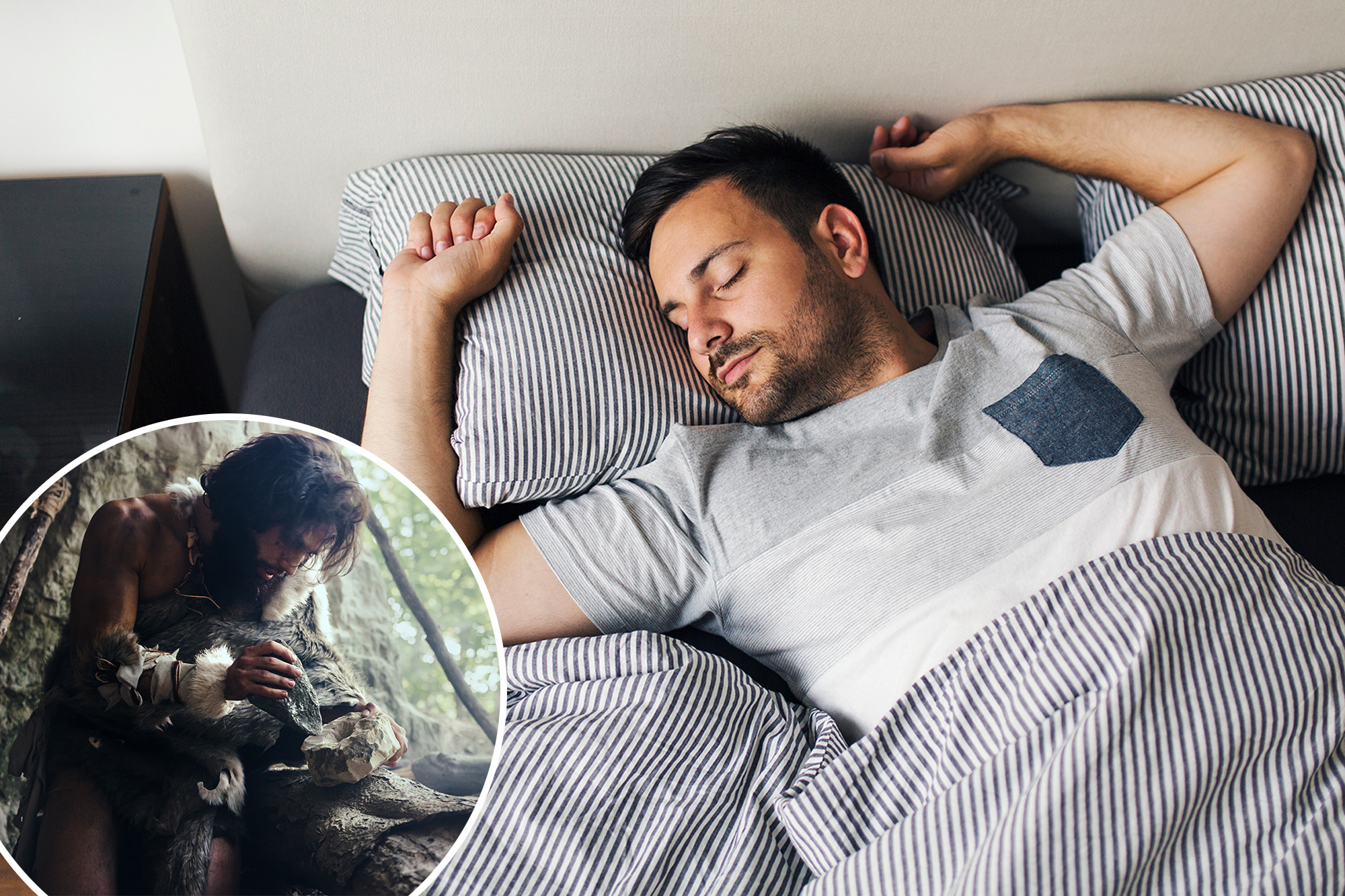Yabba Dabba Snooze!
Sleep is essential for physical and mental health: it is crucial for brain function, memory consolidation, tissue repair, immune system maintenance, concentration, hormonal regulation and stress management.
Unfortunately, more than a third of North adults -Americans do not rest enough. Inappropriate sleep has been linked to cognitive problems, a weakened immune system, weight gain, depression and a higher risk of chronic diseases such as heart disease, diabetes and high blood pressure.
A Dutch sleep scientist and recovering insomnia Merijn van laar suggested that our ancestors can have the key to sleeping like a rock.
“Sleep has hardly changed as Paleolithic humans snatched well in their caves,” says Van laar to his new book, “How to Sleep Like to Caveman.”
“Although the tigers dented by Saber were their greatest night concern, today is the stress and social networks that keep us awake, but the solutions are the same,” he added.
Van laar shared four suggestions for better sleep in three weeks: the cave was not needed.
Drop the eight -hour rule
Experts generally recommend adults between seven and nine hours at night. Van laar said it is okay to get six.
“The average subject of the subjective sleep is between less than six hours and almost seven and a half hours,” he told The Post. “Sleeping six hours is generally not more associated with health problems compared to eight hours of sleeping.”
Be careful with the potential risks of catching less wink. A 2019 Penn State study found that middle -aged adults with high blood pressure or diabetes who had an average of less than six hours at night had twice the risk of dying from heart disease or stroke than those who spent the most time.
People with a history of heart disease or stroke had three times the risk of dying from cancer if reduced less than six hours at night.
Examine your attitude toward lying wake up at night
If you are awake at night don’t bother. Van laar said that the awake time is normal: it is only a problem if you are restless or restless.
“We have forgotten to wake up because, in industrialized countries, we find a higher sleep pressure due to shorter bed time,” he said.
“In a more natural situation, where even the best sleeping wakes up very much (like the Hadza tribe in Tanzania), lying awake is a different and less problematic shape.”
Discover your personal sleep needs
Van de laar suggested experimenting with the time you spend in bed to find out what is more restoring.
“If you are regularly awake and restless at night, instituting a shorter bed time to increase sleep pressure,” he said. “The goal at first is not to sleep better, but to have shorter periods to awaken restlessness. This is how the negative circle of insomnia is broken.”
To do it, calculate the time you slept on an average night last week and add half an hour. It’s the time you have to go to bed this week. Do not spend less than five hours.
Next to the Flip, you have to consider -extend the amount of time you spend in bed if you sleep quite continuously, but you feel that you are sleeping too little.
“If you continue to have nights and work better during the day or even feel less asleep, you know that you are on the right track,” he said.
Respect your circadian rhythm
The circadian rhythm is the 24 -hour clock of your body: it regulates the cycles of sleep awakening, the release of hormones, appetite, digestion and body temperature. These natural processes are strongly influenced by light and dark.
“Skip the 6 am exercise class if it does not adapt to the natural circadian rhythm,” Van de laar advised. “Try to find out what is your biologically determined night rhythm and try to follow it as much as possible.”
#trouble #sleeping #ways #sleeping #cavern #cure #insomnia
Image Source : nypost.com
